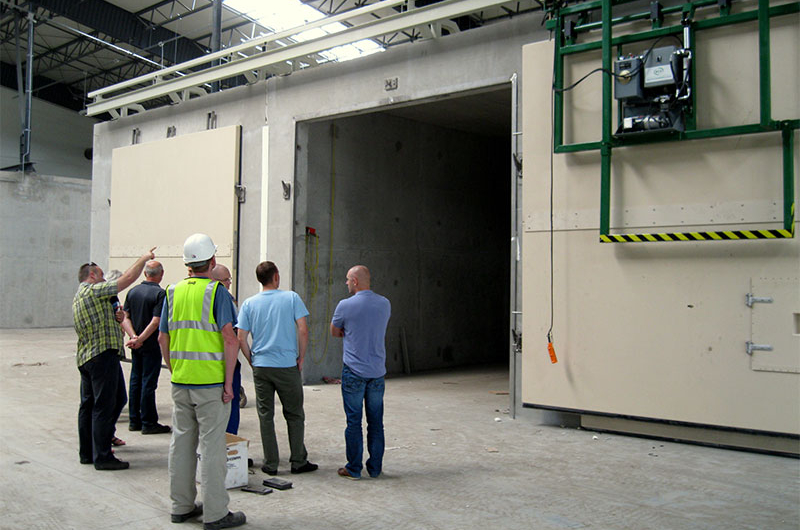
In 2013 Engineered Compost Systems (ECS) and our Polish partner, WCI-Natcol, won the contract to design and supply the process technology for a proposed in-vessel composting facility in Sobucyzna Poland. Start-up began in Q3 2014 and the facility was put into full operation in December 2014. This facility is processing municipal solid waste in order to reduce organics going to the landfill per European Union directives.
SV Composter™ was selected as the compost process solution for Sobuczyna. The Sobuczyna composting facility is co-located at the City of Czestochowa landfill, along with a MRF for processing recyclables. The Sobuczyna facility is designed to compost 22,000 tons per year of organics. The composted product is called “Stabilzat” (Stabilized MSW Compost) and is used for Alternate Daily Cover at their landfill.
The SV Composter™ is an in-vessel composting system designed to provide a high level of process control in order to reliably reduce odors and rapidly stabilize the biomass during the initial 17-28 days of primary composting.
A single stream of MSW enters the facility where recyclables are removed (by pickers), and is then passed through a 0-80 mm screen. Fines from the screen are sent to the composting system. The composting system includes 18 SV Composter™ vessels. Each vessel is filled and unloaded using front end loaders and has a process capacity of 233 cubic yards.
The vessel doors are a major cost center for in-vessel systems and ECS redesigned the vessel doors for Sobuczyna. The vessel doors must be insulated, corrosion proof, stiff, self-sealing, and easy to operate. The ECS third-generation doors are manufactured from FRP (fiberglass reinforced plastic) instead of stainless steel cladding over an aluminum frame as with previous doors. Their advantages include lighter weight, easier operation, a better dimensional stability and sealing, and more reasonable shipping costs worldwide.
Besides the doors, ECS deliverables included the system design, CompTroller™ (aeration control and monitoring system), facility start-up, staff training and on-going technical and facility support.
The U.S. Export-Import Bank was a key component in this project and allowed a small USA business like ECS to compete in the global economy.